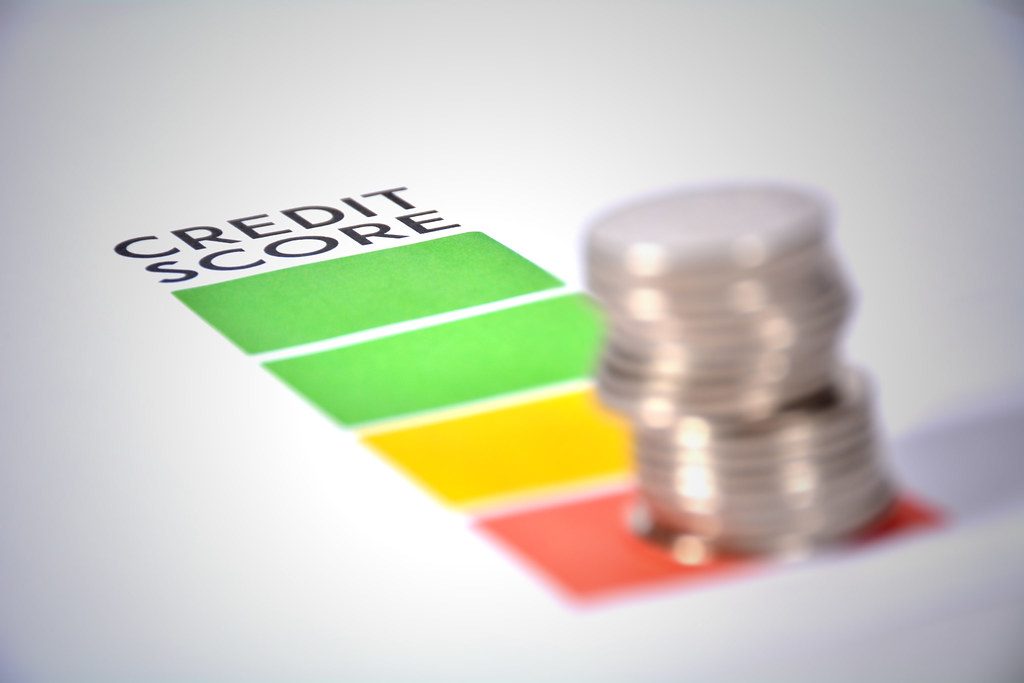 Naturally, divorce is a topic most of us would prefer to avoid. But it’s wise to know how divorce could affect your money, even if you never think it’s a possibility.
Naturally, divorce is a topic most of us would prefer to avoid. But it’s wise to know how divorce could affect your money, even if you never think it’s a possibility.
So this article about divorce and money is for you, whether you’re engaged, married, considering divorce, or going through a divorce right now.
Who Wants to Think About Divorce and Money? Probably No One.
Ignorance starts out as bliss.
Many of us plan our weddings with the utmost care. We worry about details like the bridesmaid’s dresses, which flavor of cake to choose, or what flowers to order.
Hopefully, at a minimum we also discuss money and how we’ll handle it going forward. Will we combine finances completely? Have yours, mine, and ours accounts? Keep only separate accounts?
But if someone we know dares to bring up the idea of a prenup, we bristle or blow them off. (Unless we’re very, very wealthy and already used to the idea.)
We don’t believe in divorce. Our love is so strong, it can withstand anything. Sometimes there’s this fleeting, superstitious feeling that by mentioning the fact that divorce exists, we are inviting it to happen. So we quickly reassure ourselves and dive back into more pleasant stuff.
And I get all that. Really, I do. We’re nesters, and nesting is a huge part of creating a household. And who wants to think about divorce when we’re in love and/or not even married yet?
I sure didn’t.
But I got divorced from my first husband after we’d been married for more than 10 years.
And it absolutely had an impact on my money.
Ignoring Divorce and Money Doesn’t Make You Divorce-Proof
The fact is, ignoring the possibility of divorce — and what it can do to your financial future — does not make you divorce-proof.
If your marriage does end, it’s better to have done a few simple things ahead of time. You’ll be better off than you might otherwise have been.
And if it doesn’t end in divorce, you’ll still be better off.
Think of it like being on an airplane, learning what to do in the unlikely event of a water landing. Preparation doesn’t hurt, but it sure can help if you do need it!
Where Divorce and Money Can Hit You Hard: And How to Safeguard Those Areas
There are four major areas where divorce and money can hit you hard. This is especially true if you haven’t taken steps to protect yourself and your future.
The areas are:
- The things you own (assets including retirement funds)
- The things you owe money on (debts)
- Your credit
- Your standard of living
If you’ve never thought about how to set up your finances to make sure you are protected in the event of divorce, don’t worry — you can still do things that can help. Even if you’ve been married for ages.
Safeguarding the Things You Own (Including Retirement Funds)
Let’s take a look at the things you own first, because those will likely be the one of the earliest things you’ll deal with in the event of divorce.
Assets are everything you own that’s worth anything, no matter how little those things may be worth.
Know What Your Family’s Assets Are
If you are considering divorce or in the middle of one, don’t hide assets or remove marital property. Do keep track of what you own, and ask a lawyer for advice.
Even if you think there’s zero possibility of divorce, you need to know exactly what your family’s assets are. Make a list of them, together with your partner. After all, what if one of you dies? It’s important to know what you’ve got.
Include things like:
- Bank accounts
- Investment and retirement accounts
- Cash
- Any real estate
- Vehicles
- Personal property
- Household items
- Collectibles
- Business assets
- etc
Make sure both your names are on any joint property. (And by make sure, I mean physically look at the deeds yourself and verify that for a fact.) An estate planning attorney can advise you on the best way to hold property jointly for tax purposes.
And yes, of course you trust your spouse. But we’ve all thought that we did something, only to find out later that we forgot. Your spouse could have made a mistake, or the paperwork could have been filed improperly. Trust, but verify.
If you have any separate property (like gifts, an inheritance, or a business owned before marriage) make sure that is clearly indicated too. Get a prenup or a postnuptial agreement to spell things out.
You want your property to stay yours. And you want your spouse’s property to stay theirs. Mingle those funds and that probably won’t happen after divorce, unless you end up with a very nice ex who either doesn’t seek legal advice or ignores it.
If You Need to Divide Up Your Assets
Even if you rent and have no money at all set aside, you’ll still have to divide up all of the household goods so that they can be split fairly and/or equally. (Depending on the state laws where you live.)
At a certain point in the process, you might feel like just letting your ex have it all! (Either out of frustration, guilt, or just a desire to get the whole horribly emotional process over with.) But doing so can be costly.
Even if you’re only dividing up household items, remember you’ll have to pay to replace the things you need. That can get pricey. So sure, let go of the stupid things or the things that don’t mean anything to you. Just don’t take it too far. Protect yourself by making sure things come out reasonably fair.
Let’s talk about debt next.
It’s Important to Know What Happens to Debt When You Divorce
I’m a huge fan of getting out of debt, but I realize many people do use debt.
If you choose to borrow, think about how you would feel if you had to pay back those loans all by yourself. Would you be ok with it? Because that could happen even in a happy marriage. (For example, if your spouse loses their job and can’t find another, or becomes disabled.)
If you don’t feel good about that idea, don’t borrow, or make paying off debt a priority if you already owe more than you’re ok with.
But What If You Already Have Debt, and are Splitting Up?
Start by making a list of what you owe, whether or not it’s jointly held debt, and when you took it on. (Before or after marriage.)
When you took out the loan matters. Because for example if your spouse took out a student loan before you combined households, and you didn’t cosign for it, usually you’re not responsible for that student loan after you divorce.
Get a copy of your credit reports to make sure you don’t miss anything. You should do that at least once a year anyway, and you can get them free at AnnualCreditReport.com.
Usually the court will divide up debts too, so you’ll need that list. How they do it depends on where you live and your exact situation.
Many people wonder how credit card debt is split in divorce. Like other debt, it usually gets split up as part of the overall dividing of assets and debts.
If you have joint credit cards with no balance, you’ll almost certainly need to close those. If you have joint credit cards that DO have a balance, things can get a little trickier.
Depending on what your court order says, one or both of you may need to transfer some or all of the credit card debt to individual cards of your own. Then you’ll close the joint cards. There are other ways to handle it too, but usually the goal is to get those joint cards to a zero balance and then close them. My ex and I closed all of our credit cards as part of our divorce.
The same kind of thing can happen for jointly-owned cars and houses, but it’s a little more involved. Essentially, you refinance to get one name off the loan, and retitle the car or home.
So Who is Actually Responsible for Debt After Divorce?
Speak with your lawyer, but in my experience ultimately the short answer is: whoever agreed to be responsible for the debt when you got it. That could be you, your spouse, or both of you.
Let me explain.
The court may assign certain debts to one spouse or another, even if you both took on the debts jointly. So your divorce decree may say your ex must pay one debt, and you other must pay another. In that sense, the divorce decree says who is responsible. It’s a legal agreement that describes what’s required between you and your ex, approved by the court.
But your credit agreements are not with the court. They’re with the lenders. And make no mistake, a credit agreement is a contract. If you both signed it, you’re both liable.
Suppose your ex gets Debt A from the court and your name is on it too. If you don’t do the refinancing/transferring mentioned above, what happens if they doesn’t pay it on time or at all?
In that case, the late payments or non-payment goes on your credit report too. (Because it is a jointly held debt.) And the creditor will probably try to get the money from YOU if they aren’t getting it from your ex. They don’t care that you’re divorced. They care that their agreement with them is upheld.
What happens if you go ahead and pay it because you cosigned for the loan, even though your divorce agreement says your ex should pay it? Probably you’ll just be out the money. You may have to sue your ex if you want to try to get the money back. So if your ex is bad with money, broke, or spiteful, be aware of what could happen.
Watching Out for Your Credit Score When It Comes to Divorce and Money
Many people worry about their credit scores, because they want to be able to borrow. (Quick note: paying off debt can help your credit score.)
Depending on your financial situation right now, a divorce could harm or help your credit score, or in some cases have no impact.
Let’s talk about the less likely scenario first: divorce improving your credit. That situation can arise if your spouse is very irresponsible with money but you’re not.
In that case, if you get divorced — AND you take care of preexisting debts (like your mortgage, car payments, and credit card debt) correctly — your credit will probably gradually improve post-divorce.
That’s because your credit score is based on your history with money, which is recorded in your credit report. Recent history generally counts for more than things that happened in the distant past.
(Getting divorced may also make it easier for you to get out of debt, if you are committed to it but your ex wasn’t.)
And now for the other scenario: your credit score could sink like a rock if things go wrong. That’s because while your score and your ex’s score are not directly tied together, your joint loans impact both scores. That becomes an issue if either party does not pay as agreed on debts that you signed for.
Protecting Your Credit Score After Divorce
There are a few ways to try to protect your credit score. Number one is to refinance where needed to get joint debt into individual names instead.
If you and/or your spouse can’t refinance, you MAY want to protect yourself by taking on more debt in exchange for your ex taking fewer assets. That way you can control making the payments, and making sure they are on time.
But only do that if you can truly afford to do so with the additional expenses you will likely have. Protecting your credit isn’t the most important thing. Providing for yourself and your kids is.
If your name is on the mortgage and your ex will continue to live there afterward, they’ll need to refinance before the bank will remove your name from the mortgage. (And vice versa.) Do NOT sign a quit claim deed without having proof that your name has been removed from the mortgage.
A quit claim deed is a way of giving up all ownership in the property. But it doesn’t release you from any responsibility for the mortgage. So you could end up having to pay for something that you don’t own if you sign the quit claim deed before the loan is refinanced. If either of you do refinance to get the other’s name off the mortgage, you’ll probably have to meet at the mortgage company to have the quit claim deed signed.
But the things you own, the things you owe, and your credit aren’t the only thing to take care of. When it comes to the possibility of divorce and money, you also need to protect your standard of living.
Protecting Your Standard of Living
Divorce can have a huge impact on your standard of living, and not in a good way. There are several reasons for that.
According to the Institute for Women’s Policy Research, in 2018 women’s earnings were 81.6 percent of men’s. Basically, women in general typically make 18.4% less for the same work as men in general. If you’re Hispanic or black, you’re likely to make MUCH less in general. Get a divorce, and the problem with this pay gap becomes very obvious.
If you have kids and they live with you, this problem is even worse after divorce. You’re left with less money to support more people.
For example, maybe you had 2 incomes that brought in $68K a year to live on for a 4-person household. But after the divorce, you have $31K a year to live on for a 3-person household.
In other words, your income has to stretch further than it did before.
But What About Child Support?
In theory child support is supposed to fix this problem, but it often does not.
Yes, you may receive child support, but let’s face it, it’s rarely going to cover enough of the actual expenses you’ll have for your kids — and that’s IF your ex does pay it on time and in full.
Because you may not get it at all, and you probably won’t get all of it.
According to the Custodial Mothers and Fathers and Their Child Support, less “than half (43.5 percent) of custodial parents who were supposed to receive child support received full child support payments.” Sadly, that makes things sound better than they are though, because only 50.2% of all custodial parents had any kind of child support agreement.
The bottom line? You have less money — which means your standard of living must drop if you don’t want to end up deeply in debt or bankrupt.
Get a divorce, and you may end up driving a beater and struggling to scrape by — while your ex drives a flashy new car.
So You Need to Protect Yourself Before Anything Happens
If you’re newly engaged or happily married, it may seem odd to think about doing things now to protect your standard of living in case of divorce. But several are things you should think about doing anyway, because they’ll help in a marriage too.
If you have an employer, negotiate your salary and ask for raises regularly. Try to find out what men in similar roles are making, and push to make at least as much yourself. Making a good salary will give you a better base to start with if divorce happens. At a minimum it’ll give you and your family more money to work with. (Money you can use to crush debt and beef up retirement.)
No matter what, make sure you can answer questions about your financial situation without having to refer to your spouse. (If you’d like to have all the info in one place, here’s my affiliate link to an ICE binder. It’s a great tool for gathering that information, along with everything you need to run your household.)
Don’t leave handling the money all to your spouse. Of course, one person may be more comfortable handling the money, but both parties need to know what’s going on.
Make sure you BOTH contribute to retirement accounts, especially if you’re in a community property state. If you contribute during the marriage but your spouse doesn’t, in community property states half usually belongs to your ex.
Don’t acquire joint debt (or any debt!) willy nilly. Think carefully about whether you want to be responsible for owing all that money at all. (And especially in the event of a divorce.)
If You Do Get Divorced
If you do go through the divorce process, consult a lawyer of your own. A lawyer doesn’t have mean there’ll be a big court drama. Instead, it should mean access to information and guidance.
So get legal advice so that you know what you’re entitled to in your area and in your situation.
Ask about things like retirement funds and pensions — you may have the right to part of them. If so, you can get a Qualified Domestic Relations Order to enforce that. You may also be able to stay on your spouse’s health insurance plan for a certain length of time. Your children should be able to stay on the plan just as if you were still married.
Know that the best thing you can do to keep as much of your standard of living as possible is to make sure you get the assets you’re entitled to.
Of course, getting your fair share isn’t about being mean or a jerk. You shouldn’t do that either. It’s about protecting your future.
The Emotional Aspects of Divorce and Money
I will tell you that it may be hard to make yourself do that. I didn’t do a good job of it. If you’re like me, you may end up so emotionally spent by that point that you just want to get it over with. Whatever is easiest may end up being what happens, but that isn’t always best.
Or you may not want people to call you “the horrible ex wife” — but guess what: unless your divorce is very friendly, that can happen anyway. If it’s any consolation, you’ll know the truth.
If you have children and don’t feel comfortable getting what you should for yourself, at least do it for them. There’s a difference between being nice and being a doormat. Stand up for yourself.
You’ll notice that it’s rarely men who throw up their hands and say “Oh ok fine take it, I don’t care.” just to make the whole thing go faster. (And I’ll tell you a little secret: that doesn’t really work anyway.)
So make sure, that you don’t end up taking all of the bad stuff along the way. Decide what is and isn’t worth it to you, but with an eye toward the long term.
Remember
The most important things to remember about divorce are:
- stay on top of your finances
- and get legal advice to make sure you’re not hurting yourself during the process if you do get divorced
Getting legal advice doesn’t have to mean that things will turn into some kind of court room drama. It just means that you’ll know what your options are, and how best to protect yourself. And staying on top of your finances is just plain smart no matter what your situation.
An earlier version of this post appears on Women’s Money.
The post What You Need to Know About Divorce and Money as a Woman appeared first on JackieBeck.com.




 Do you have a spending problem? I do. The thing is, it’s not always easy to recognize a spending problem. Some of us have one and don’t even realize it.
Do you have a spending problem? I do. The thing is, it’s not always easy to recognize a spending problem. Some of us have one and don’t even realize it.




 Naturally, divorce is a topic most of us would prefer to avoid. But it’s wise to know how divorce could affect your money, even if you never think it’s a possibility.
Naturally, divorce is a topic most of us would prefer to avoid. But it’s wise to know how divorce could affect your money, even if you never think it’s a possibility.
